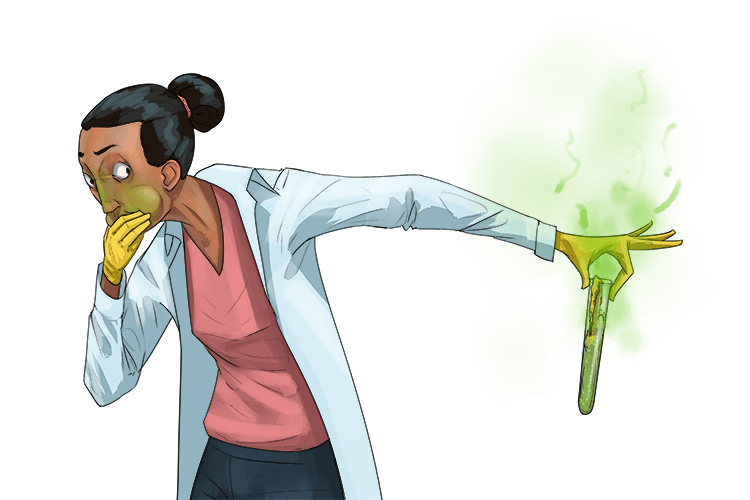Does the world sometimes feel saturated with acts and individuals that leave a bitter taste in your mouth, a deep sense of unease? If youve ever recoiled from something profoundly wrong, disgusting, or just plain awful, then you've likely encountered the essence of "vile."
The word "vile" is more than just a descriptor; it's a condemnation. Its a linguistic hammer, striking at the core of what is morally reprehensible, intensely unpleasant, or utterly worthless. Oxford Languages defines it as "morally despicable, abhorrent, or repulsive, or of little worth or account." Cambridge Dictionary echoes this, explaining that vile encompasses the qualities of being "unpleasant, immoral, and unacceptable, or extremely unpleasant." The definition is consistent across different resources, underscoring the severity of the term.
To fully grasp the nuances of "vile," let's delve deeper into its characteristics, synonyms, and the situations in which it aptly applies. We can explore examples of how "vile" is used in sentences to provide clarity on its usage, including its pronunciation (pronounced /val/).
- Peter Cullens Net Worth How Much Does Optimus Prime Voice Actor Earn
- Joe Liebermans Net Worth A Financial Overview Legacy
The essence of "vile" goes beyond mere negativity; it delves into the realm of moral and ethical bankruptcy. It encapsulates actions, behaviors, or conditions that are not only disagreeable but actively harmful, causing disgust and repulsion. "Vile" signifies a profound breach of decency, a blatant disregard for what is considered acceptable in human conduct. This word is associated with concepts such as "evil," "immoral," "wicked," and "despicable."
The term "vile" carries a weight of severity. It signals a level of depravity that goes beyond mere mistakes or imperfections. When something is described as "vile," it's implied that it is fundamentally wrong, that it offends against fundamental principles of morality and humanity. It is an indictment, a statement of utter disapproval.
Synonyms offer a path towards a more comprehensive understanding of "vile." Consider words like "abhorrent," "repulsive," "disgusting," "offensive," and "detestable." Each word carries similar weight, reinforcing the notion that "vile" is a term of strong disapproval. Conversely, antonyms, such as "moral," "good," "virtuous," and "honorable," provide a contrasting perspective. These words define the boundaries between acceptable and unacceptable conduct and character.
- Ken Blocks Net Worth How Rich Was The Rally Legend
- Ryan Phillippe Net Worth Dating Facts You Didnt Know
The usage of "vile" is diverse, encompassing a broad spectrum of situations, including descriptions of individuals, actions, conditions, and even objects. The word serves as a powerful tool for highlighting what is perceived as offensive or corrupt. For instance, the phrase "vile behavior" immediately paints a picture of actions that are considered morally wrong and socially unacceptable. "Vile conditions" describes environments that are harmful and unpleasant, emphasizing the severity of the situation. "Vile comments" suggests speech that is intended to be offensive or hurtful. "Vile acts" are deliberate actions that are considered to be morally reprehensible.
Historically, the term "vile" has deep roots. Its meaning is consistent throughout the centuries, reflecting the enduring human capacity for creating actions and behaviors that shock and repulse us. The word's persistent presence in the English language proves it is a vital part of our lexicon.
Within the biblical context, "vile" frequently refers to actions, behaviors, or traits viewed as morally unacceptable, repulsive, or abominable in the eyes of God. It is associated with sinfulness, corruption, and moral decline. Examples like "A man in vile raiment" or the consideration of something as a "vile thing" underline the term's significance in the moral and spiritual realm. These references emphasize the moral and ethical dimensions of "vile," its association with actions that are deemed sinful or spiritually corrupt.
The application of "vile" is found in varied contexts, from literature to everyday conversation. Whether describing a character in a novel, an act of cruelty in the news, or a disagreeable smell, "vile" offers a concise way to express condemnation and disgust. In the realm of movies, "vile" characters are often the antagonists, the embodiments of wrongdoing and malice. Their vile actions typically drive the plot, highlighting the contrasts between good and evil.
In terms of usage, it is crucial to appreciate the severity of the term "vile." It should be used with care. It is not a word to use lightly. Misusing the term risks watering down its meaning and negating its impact. When employed properly, "vile" serves as a powerful tool for conveying intense disapproval and the gravity of a situation.
The word "vile" is not just a descriptive term; it is also a moral judgment. It demands a response, whether it's condemnation, revulsion, or a call for change. It reminds us of the importance of decency, morality, and the ongoing struggle against the darkness that exists within individuals and societies.
The term "vile" also extends to feelings, such as those of disgust. "The taste of the spoiled milk was utterly vile," for example, illustrates its use to evoke a sensory experience. Additionally, "vile odor" is also a useful term to describe something that is extremely unpleasant to smell.
In conclusion, "vile" is more than just an adjective. It is an essential part of our vocabulary for discussing the most deplorable aspects of human experience. From moral failings to physical revulsion, the word provides an impactful and memorable way to convey strong condemnation and disgust. When we understand and correctly apply the word "vile," we enhance our capability to understand and critique the complex world around us.
| Attribute | Details |
|---|---|
| Definition | Morally despicable, abhorrent, or repulsive; of little worth or account. |
| Pronunciation | /val/ |
| Synonyms | Evil, immoral, wicked, despicable, abhorrent, repulsive, disgusting, detestable. |
| Antonyms | Moral, good, virtuous, honorable, noble, righteous, sublime, ethical. |
| Usage Examples |
|
| Origin | From Old French "vil" (of little worth, base), from Latin "vilis" (cheap, base). |
| Related Concepts | Morality, ethics, sin, corruption, degradation, repulsion, disgust. |
| Associated Fields | Ethics, literature, history, religious studies. |
For further information and examples, you can consult the Oxford Advanced American Dictionary.
For additional insight into the usage of "vile," consult reputable dictionaries like the Oxford English Dictionary and Cambridge Dictionary. Also, you can refer to the Merriam-Webster dictionary.



Detail Author:
- Name : Mr. Presley Metz
- Username : lcrona
- Email : renner.sienna@yahoo.com
- Birthdate : 1990-11-23
- Address : 859 Nolan Oval Suite 649 West Kristofer, MA 44515-0073
- Phone : 812.381.5133
- Company : Boyle, Witting and Boehm
- Job : Solderer
- Bio : Dolorem vero quibusdam labore. Quae sed dolorem dolor et deleniti est alias. Officiis delectus laudantium non at sint voluptas qui.
Socials
linkedin:
- url : https://linkedin.com/in/tgerlach
- username : tgerlach
- bio : Qui quis delectus iure maxime omnis.
- followers : 1911
- following : 1144
facebook:
- url : https://facebook.com/tamia3408
- username : tamia3408
- bio : Quidem modi debitis sit.
- followers : 4225
- following : 2711
twitter:
- url : https://twitter.com/tamiagerlach
- username : tamiagerlach
- bio : Delectus magnam similique quia at. Fugiat at explicabo unde et ut a modi. Exercitationem unde impedit incidunt perspiciatis.
- followers : 2648
- following : 1297